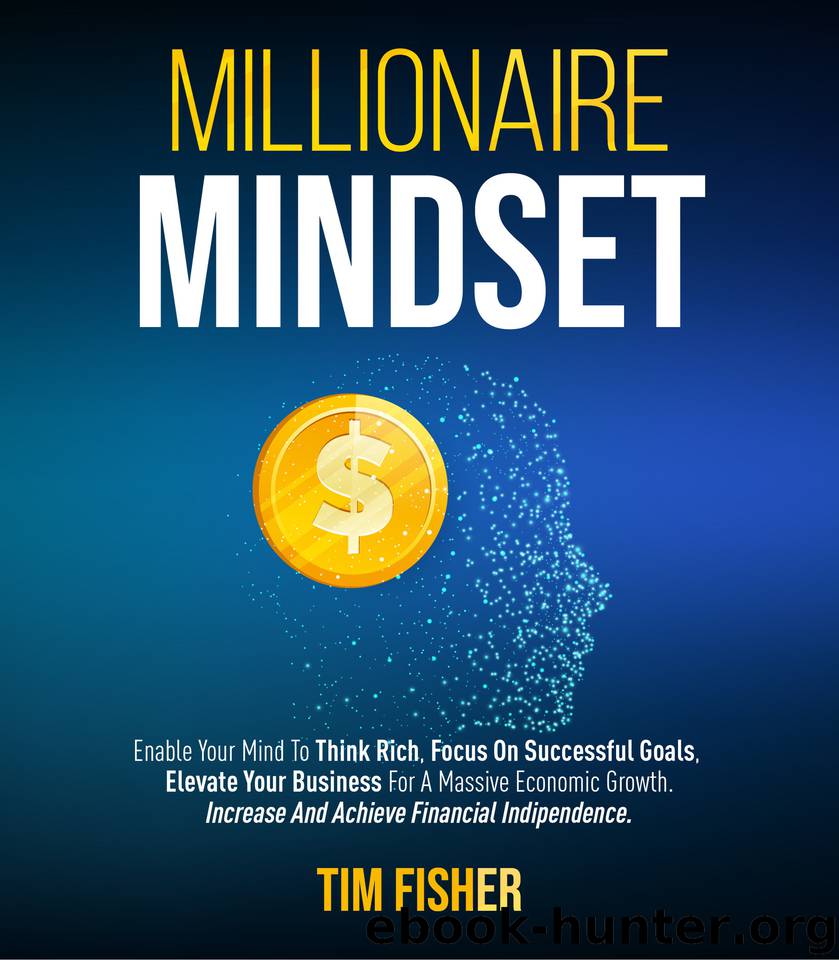Millionaire Mindset: Enable Your Mind To Think Rich, Focus On Successful Goals, Elevate Your Business For A Massive Economic Growth. Increase And Achieve Financial Indipendence. by FISHER TIM

Author:FISHER, TIM [FISHER, TIM]
Language: eng
Format: epub
Published: 2020-03-02T16:00:00+00:00
Most confident people are victims of self-deception.
Ask people about their successes in anything, including such difficult subjects as algebra, and most will say “above average”, which is logically impossible. How can most people be better than most? The “above average” effect, or the illusion of superiority, is generated by our strong unconscious desire to see ourselves in a good light, a desire characteristic of most people. As a matter of fact, it is people with low confidence who are not inclined to overestimate their self-esteem. So if you have never felt better than others, you are dominated by lesser errors than most people.
Surprisingly, wherever you look, the effect is "above average" everywhere. For example, most people think that their memory, like health, is “above average. Most managers consider themselves to be “above average” managers and businessmen. Professional athletes, such as soccer players, think that they play better than most of their colleagues, and most people believe that their personal lives are better than most . There are areas where the illusion of superiority is particularly pronounced. For example, 90% of people think that as drivers they are “above average”, 90% of high school students think that their social skills are “above average”, and nearly 100% of university professors rate their teaching skills as “above average”. Of course, some people will be right in categorizing themselves as “above average,” but in most cases their confidence in it is unfounded: it is statistically impossible for 90 or 100% to be “above average”, because by definition the average value will fall in the middle of the indicators by population. The failure of these high levels of confidence becomes especially apparent if we take into account that some of the people who rate themselves as “below average” may actually be wrong.
Apparently, the extreme manifestation of the “above average” effect is that most people consider themselves less prone to cognitive distortions than the average person. This "blind spot" in relation to their own bias was described in detail by Princeton psychologist Emily Pronin. In one of her experiments, Associate professor Pronin asked participants to evaluate the extent to which reasoning errors apply to them. To do this, she offered the participants informal descriptions of each type of error, for example:
“Psychologists say that in the perception of their own results in school or work, people tend to flatter themselves. In other words, they tend to take credit for success, but deny their own responsibility for defeat; they attribute their success to personal qualities, such as energy or ability, but failures are perceived as a result of external factors, such as excessive demands on the job or poorly written instructions”.
After reading each description, participants evaluated how often they sin with each of the proposed distortions compared to the average person. Although they were told how common these distortions were, most participants rated themselves as unbiased compared to Americans in general. Associate professor Pronin concluded that the fact that we know about these flattering distortions and their effect
Download
This site does not store any files on its server. We only index and link to content provided by other sites. Please contact the content providers to delete copyright contents if any and email us, we'll remove relevant links or contents immediately.
Hit Refresh by Satya Nadella(9140)
The Compound Effect by Darren Hardy(8975)
Change Your Questions, Change Your Life by Marilee Adams(7786)
Nudge - Improving Decisions about Health, Wealth, and Happiness by Thaler Sunstein(7711)
The Black Swan by Nassim Nicholas Taleb(7136)
Deep Work by Cal Newport(7089)
Rich Dad Poor Dad by Robert T. Kiyosaki(6642)
Daring Greatly by Brene Brown(6518)
Principles: Life and Work by Ray Dalio(6459)
Playing to Win_ How Strategy Really Works by A.G. Lafley & Roger L. Martin(6316)
Man-made Catastrophes and Risk Information Concealment by Dmitry Chernov & Didier Sornette(6022)
Big Magic: Creative Living Beyond Fear by Elizabeth Gilbert(5778)
Digital Minimalism by Cal Newport;(5767)
The Myth of the Strong Leader by Archie Brown(5511)
The Slight Edge by Jeff Olson(5420)
Discipline Equals Freedom by Jocko Willink(5391)
The Motivation Myth by Jeff Haden(5214)
The Laws of Human Nature by Robert Greene(5213)
Stone's Rules by Roger Stone(5089)
